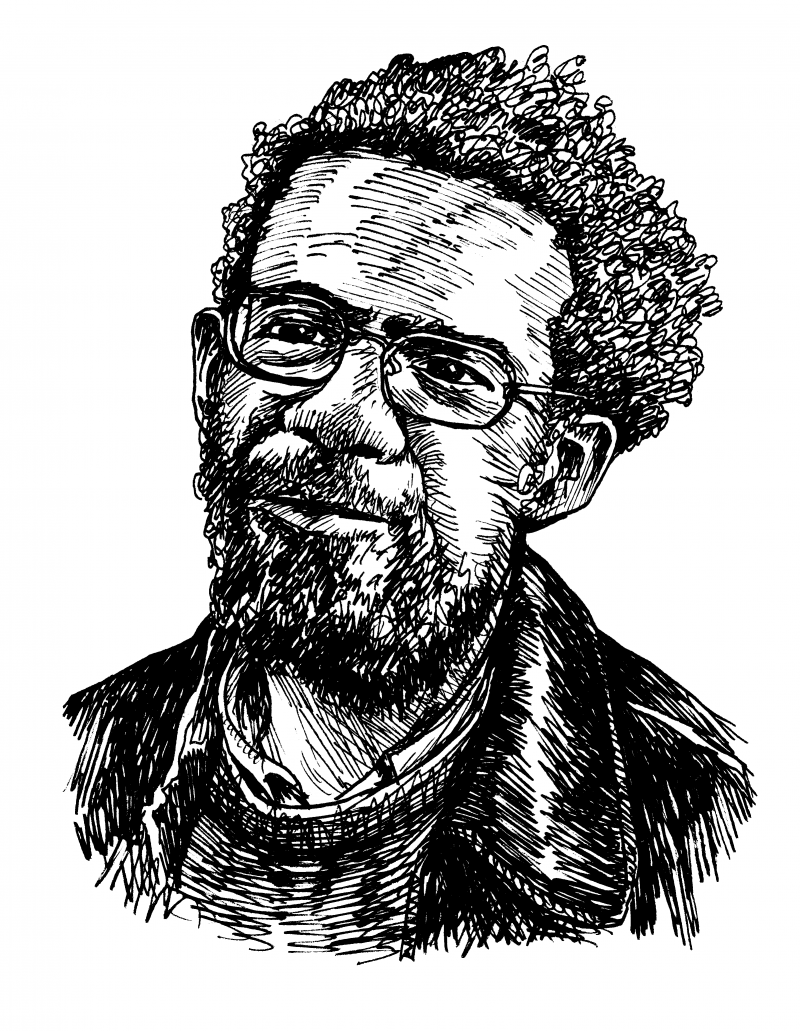At this year’s Whitney Biennial, Pope.L exhibited 2,755 slices of bologna. He pinned the meat with a grid of photographs on the walls of a large pink and green cube and allowed its greasy orange juices to dribble down the walls and pool in green gutters around the cube’s perimeter. Over the three-month exhibition, the meat festered and the smell grew increasingly putrid, filling the museum’s galleries with the undeniable sense that something in the air was off.
Pope.L has a way of destabilizing his viewers. He calls everything into question—institutions, perceptions, cultural conventions, identities—and he does so by provoking us with absurdity. As he sees it, the bologna in the Whitney installation (titled Claim [Whitney Version]) represents flesh, and the number of slices is a reference to some percentage of the Jews in New York City. It’s a comment on multiculturalism, and yet he purposely distorts the statistics, intentionally destroying the integrity of whatever statement he seems to be making.
These kinds of gestures are what have made Pope.L a slippery artist since the ’70s, when he began performing on the street. He refers to himself as “the Friendliest Black Artist in America,” and omits his first name (William) when exhibiting. He seems to eschew style, and instead experiments freely with a variety of materials and approaches, from abstract painting to writing to appropriative sculpture. He rarely settles into any clear political position, though the work often suggests what he calls “socially responsible” activist impulses, sometimes even philanthropy. Recently, he bottled and sold questionable, possibly polluted water from Flint, Michigan, to raise money for the city.
Likewise, Pope.L treats the concept of race with poetic nonsensicality. His best-known piece is a performance titled The Great White Way, in which he donned a superman costume and, over a period of nine years, intermittently crawled along the twenty-two miles of Broadway in New York City. Likewise, his ongoing Skin Set drawings are scrawled aphorisms on skin color: Black people are the window and the breaking of the window and Purple people are the end of orange people and Orange people are god when She is shitting. In these drawings, he seems to mock the whole idea of racial reductionism, and opens up a vast, ambiguous space for humor and interpretation.
The following interview—my second with Pope.L—was conducted through email correspondence over several months. His responses are written with the freewheeling, contradictory energy of his art, with both stuttered emotional reactions and carefully parsed explanations. Before we began, he sent me a contract that declared that he “owns all copyright and intellectual property rights to all his writing,” which, of course, includes...
You have reached your article limit
Sign up for a digital subscription and continue reading all new issues, plus our entire archives, for just $1.50/month.
Already a subscriber? Sign in





